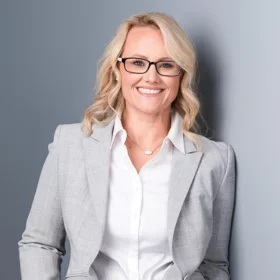By Nia Anyike
Edith Updike, the lecturer of the Strategic Storyteller course, is no stranger to, well, storytelling. In fact, storytelling has been one of the main components of her career. After taking a break from lecturing for ten years at Columbia in 2016, Professor Updike is returning to the School of Professional Studies this fall to teach master’s degree students the art of storytelling.
Updike's CV: Managing editor at Global Finance magazine, Anton Media Group, and FundFire. She also was the deputy editor for Long Island Press and editor-in-chief at Hunt Scanlon Media. Updike began her career journey as a foreign correspondent for Business Week magazine in New York and Tokyo. She received her master’s in journalism from Columbia and was a Women’s International Leadership Fellow and East Asia Fellow during her studies.
Updike discussed her journey with Strategic Communication M.S. student Nia Anyike. Edited excerpts are below.
What inspired you to become a communications professional, and what inspired your interest in storytelling?
I came into the communications field from journalism. Storytelling was baked into the DNA of that from the beginning. Even if you are presenting a story that is not a narrative, it’s still a story. A lot of the same rules and ideas apply. For me, it was almost the opposite [coming into communications]. If you start in communications, storytelling is an advanced part of it. I was coming from storytelling and learning more about communications.
What was a significant turning point in your career?
I have had multiple turning points. I spent a long time working overseas. I spent the first ten years after college working in Asia, mostly in Japan and Thailand. I taught in a corporate setting in Japan and at a refugee camp in Thailand. Coming back to the U.S., I got a graduate degree in journalism at Columbia, which was another turning point. I joined the Columbia Strategic Communication faculty in 2006. I had met Professor Shawn McIntosh [a Strategic Communication lecturer at the time] in Japan. He invited me to teach the class. I really came to love the program, teaching, and working with the students at Columbia. Everybody was curious and engaged but also playful and dedicated to growing and learning. I had many teaching experiences, but the SPS program was one of the most satisfying.
What obstacles did you face in your career?
I have certainly faced sexism in my career. It is not necessarily one obstacle, but a lot of low-line obstacles. It makes a lot of things a little bit harder and has caused problems upon occasion. Another significant challenge (was and) is the rapid change in the industry. Journalism has been shedding jobs for decades. That is an incredible change in journalism and in communications overall.
Was there a mentor who helped you overcome those obstacles?
As deputy editor or managing editor in journalism, it is a lot about getting things done, working with reporters, and ensuring everything happens. I have learned something valuable and worthwhile from the editors I worked under. Each of them taught me something different from the way they led people. They have all been mentors in a way.
What is your goal for the Strategic Storyteller course?
To teach a great class and see what the students bring to the table. I had dropped out of teaching for a few years, so this is a joyful reentry.


